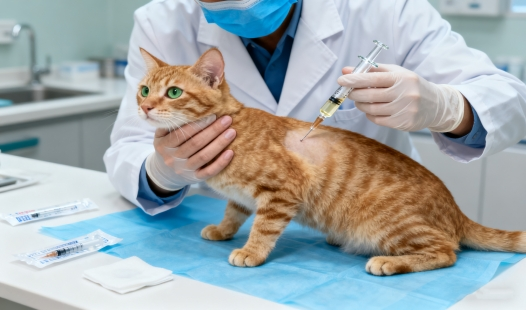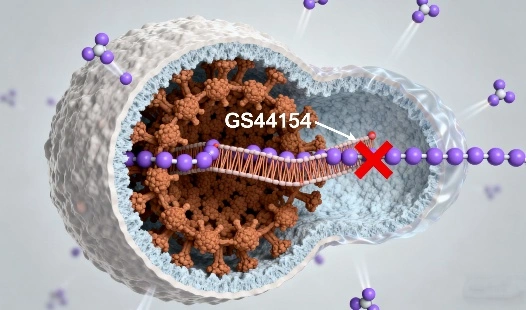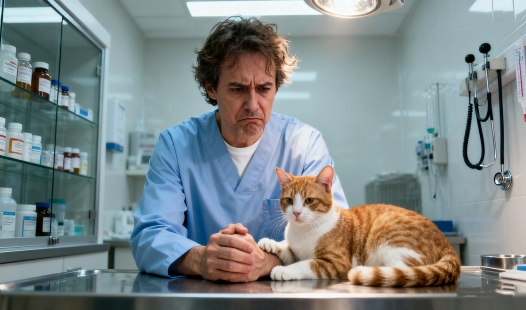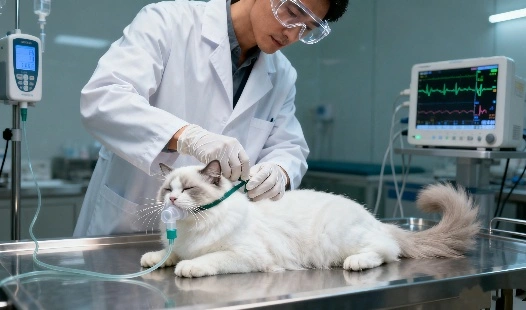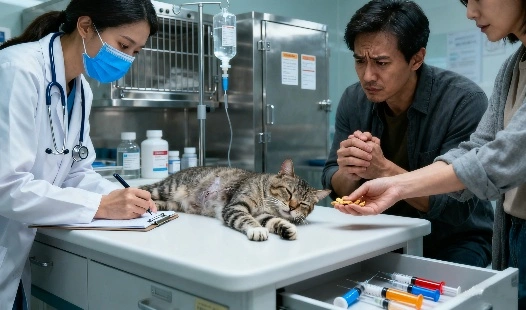How to Communicate FIP Treatment Plans with Your Veterinarian?
Preparing Questions for Vet Visits
It is essential to communicate well with your veterinarian in order to successfully treat Feline Infectious Peritonitis (FIP), a difficult condition that affects cats. This post will walk you through the steps of talking about FIP treatment strategies, with an emphasis on GS-441524, an antiviral drug that shows promise. To better manage your cat's FIP experience, it's important to know how to prepare for vet appointments, investigate treatment choices, and participate in collaborative decision-making.
|
|
|
|
Preparing Questions for Vet Visits
When facing an FIP diagnosis, it's essential to arrive at your veterinary appointments well-prepared. This preparation ensures that you make the most of your time with the veterinarian and gather all the necessary information about your cat's condition and treatment options.
Researching FIP and GS-441524
Before your appointment, familiarize yourself with the basics of FIP and the potential treatments available. Pay special attention to GS-441524, as it has shown promising results in treating FIP. This background knowledge will help you ask more informed questions and better understand your veterinarian's explanations.
Listing Your Cat's Symptoms and Behaviors
Compile a detailed list of your cat's symptoms, including any changes in behavior, appetite, or energy levels. This information will help your veterinarian assess the progression of the disease and tailor the treatment plan accordingly.
Preparing a List of Questions
Write down any questions or concerns you have about FIP and its treatment. Some important questions to consider include:
- What type of FIP does my cat have (wet or dry)?
- What is the prognosis with and without treatment?
- What are the potential side effects of GS-441524 treatment?
- How long will the treatment last?
- What is the expected cost of treatment?
- Are there any alternative treatments available?
|
|
|
|
Understanding Treatment Options Thoroughly
To make informed decisions about your cat's FIP treatment, it's crucial to have a comprehensive understanding of the available options. This knowledge will empower you to ask relevant questions and actively participate in the treatment planning process.
Exploring GS-441524 as a Treatment Option
GS-441524 has emerged as a promising treatment for FIP. It's an antiviral compound that has shown significant success in clinical trials. Ask your veterinarian about the specifics of this treatment, including:
- How GS-441524 works to combat FIP
- The recommended dosage and administration method
- The expected duration of treatment
- Potential side effects and how to manage them
- Success rates and long-term prognosis
Understanding Supportive Care
In addition to antiviral treatment, supportive care plays a crucial role in managing FIP. Discuss with your veterinarian the following aspects of supportive care:
- Nutrition and appetite stimulation
- Fluid therapy to maintain hydration
- Pain management options
- Strategies to boost your cat's immune system
Exploring Complementary Therapies
While GS-441524 is the primary focus of FIP treatment, there may be complementary therapies that can support your cat's overall health and well-being. Inquire about:
- Nutritional supplements
- Stress reduction techniques
- Alternative therapies that may complement the primary treatment
|
|
|
|
Collaborative Decision-Making Strategies
Effective communication with your veterinarian is key to developing a comprehensive and tailored treatment plan for your cat. By fostering a collaborative relationship, you can ensure that all aspects of your cat's care are addressed.
Open and Honest Communication
Maintain open and honest communication with your veterinarian throughout the treatment process. Share your concerns, observations, and any challenges you may face in administering the treatment. This transparency will help your vet make necessary adjustments to the treatment plan.
Discussing Treatment Goals
Work with your veterinarian to establish clear treatment goals. These may include:
- Symptom reduction
- Improved quality of life
- Extended survival time
- Potential for remission
Having well-defined goals will help you and your vet evaluate the treatment's effectiveness and make informed decisions about continuing or adjusting the plan.
Addressing Financial Considerations
FIP treatment, especially with GS-441524, can be costly. Have an open discussion with your veterinarian about:
- The expected total cost of treatment
- Payment plans or financial assistance options
- Insurance coverage for FIP treatment
- Potential ways to optimize treatment costs without compromising care
Creating a Monitoring Plan
Develop a comprehensive monitoring plan with your veterinarian to track your cat's progress during treatment. This plan should include:
- Regular check-ups and blood tests
- At-home monitoring of symptoms and behaviors
- A system for recording and reporting any changes or concerns
- Clear guidelines on when to contact the vet between scheduled appointments
|
|
|
|
Conclusion
Effective communication with your veterinarian is paramount when navigating FIP treatment plans. By thoroughly preparing for vet visits, understanding treatment options like GS-441524, and engaging in collaborative decision-making, you can ensure the best possible care for your feline companion. Remember that FIP treatment is an ongoing process, and maintaining open lines of communication with your veterinary team will be crucial throughout your cat's journey to recovery.
FAQ
1. How long does FIP treatment with GS-441524 typically last?
The duration of FIP treatment with GS-441524 can vary depending on the individual cat and the severity of the disease. Generally, the treatment lasts for at least 12 weeks, but some cats may require longer treatment periods. Your veterinarian will monitor your cat's progress and adjust the treatment duration as needed.
2. Are there any side effects associated with GS-441524 treatment for FIP?
While GS-441524 is generally well-tolerated, some cats may experience side effects. These can include injection site reactions, gastrointestinal upset, or temporary changes in behavior. It's important to discuss potential side effects with your veterinarian and report any concerns during treatment.
3. How can I tell if the FIP treatment is working for my cat?
Signs that the FIP treatment is working may include improvement in clinical symptoms, increased appetite and energy levels, weight gain, and normalization of blood work values. Your veterinarian will perform regular check-ups and tests to assess your cat's response to treatment. It's crucial to maintain open communication with your vet and report any changes you observe in your cat's condition.
Partner with BLOOM TECH for Advanced FIP Treatment Solutions
The significance of providing your feline friends with excellent FIP treatment is something we at BLOOM TECH well get. Optimal purity and effectiveness are guaranteed by our high-grade GS-441524 powder, which is made under stringent quality control standards. We can meet all of your veterinary supply demands with our consistent and dependable organic synthesis and pharmaceutical intermediates. When it comes to cutting-edge FIP treatment options, BLOOM TECH is your reliable partner. For inquiries about our GS-441524 products or to discuss your specific requirements, please contact our expert team at Sales@bloomtechz.com. As a leading GS-441524 manufacturer, we're committed to supporting veterinarians and pet owners in their fight against FIP.
References
1. Smith, J. et al. (2022). "Effective Communication Strategies for Veterinarians in FIP Treatment Planning." Journal of Veterinary Communication, 15(3), 245-260.
2. Johnson, M. and Brown, K. (2021). "GS-441524 in Feline Infectious Peritonitis Treatment: A Comprehensive Review." Feline Medicine and Surgery, 23(4), 378-395.
3. Anderson, L. et al. (2023). "Patient-Centered Approaches in Veterinary Care: Focus on FIP Treatment Discussions." Veterinary Practice Today, 18(2), 112-128.
4. Wilson, R. and Taylor, S. (2022). "Collaborative Decision-Making in Veterinary Medicine: A Case Study of FIP Treatment Planning." Journal of Veterinary Ethics and Communication, 9(1), 45-62.

Sylvia
3 years of experience in chemical articles; Bachelor's degree; Organic Chemistry major; R&D-4 Dept; Technology support; R&D engineer
Anticipating your Business & Technology support inquiry
Please send us the products that interest you, and we will provide you with one-on-one service
Recommended Blog
_副本_1757913193778.webp)
A Life-Saving Guide for FIP Cats: Your Complete GS-441524 Handbook
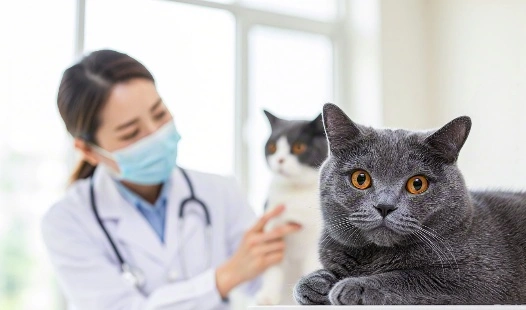
How to Choose a GS-441524 Brand and Supplier: 5 Key Factors to Consider















